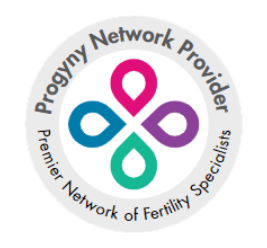It has been well established that supplemental folic acid taken in pregnancy can help to decrease the chance a child will be born with a neural tube defect, such as spina bifida. Although many foods in the U.S. are currently fortified with folic acid, it is recommended that all women start taking prenatal vitamins containing 400 mcg of folic acid per tablet even before trying to conceive, or start them as soon as they know they are pregnant. It is also known that women who have epilepsy and take anticonvulsant drugs to help prevent seizures need higher doses of folic acid to lower the risk of neural tube defects in their offspring.
We recommend taking folic acid prior to pregnancy so that the levels in your blood are optimal as soon as pregnancy occurs. In addition to getting 400 mcg of folic acid from supplements and fortified foods, you can eat a diet rich in folate. You can get this from beans, peas and lentils, oranges and orange juice, asparagus and broccoli, and dark leafy green vegetables such as spinach, and mustard greens. We are especially fond of the Mango Madness Smoothie which has a good healthy dose of folate!
It has been suggested that folic acid may also help to decrease the risk of autism spectrum disorder (ASD) in children. Two very recently published research studies help to corroborate this.
Studies linking folic acid and lower autism rate
A large study from the University of Haifa in Israel followed a cohort of children in one Israeli health care organization born between January 1, 2003 and December 31, 2007 from birth until January, 2015. In Israel, food is not fortified with folic acid. The researchers were able to obtain information on pharmacy- dispensed folic acid supplements. Of the 45,300 children born to 26,702 mothers, 572 or 1.3% received a diagnosis of ASD. Maternal exposure to folic acid supplements before pregnancy was associated with a 56% lower risk of ASD in their offspring compared with mothers who did not take folic acid or multivitamin supplements. Mothers who took folic acid only during pregnancy also had a lower risk of ASD in their offspring (32% lower than those mothers who did not take either folic acid or multivitamins).
A study from Norway found that children of mothers who were on antiepileptic medications during pregnancy and took folic acid supplements during their pregnancy had a significantly lower risk of autistic traits than did children of mothers who were on antiepileptic medications and did not take folic acid. The study involved children of 103,868 mothers who completed questionnaires regarding use (or non-use) of antiepileptic drug treatment and folic acid supplements during pregnancy. In the 335 children who were exposed to antiepileptic drug treatment in utero, but whose mothers did not take folic acid supplements, the risk for autistic traits was significantly higher at 18 months of age (5.9 times higher) and at 36 months of age (7.9 times higher) than in children whose mothers had taken antiepileptic drug treatment and had also taken folic acid supplements during pregnancy. Also, although not the main focus of this study, the children of women who did not have epilepsy, but who took folic acid during pregnancy had a lower risk of having autism at both 18 and 36 months of age than children of women who were not epileptic and did not take folic acid in pregnancy.
during their pregnancy had a significantly lower risk of autistic traits than did children of mothers who were on antiepileptic medications and did not take folic acid. The study involved children of 103,868 mothers who completed questionnaires regarding use (or non-use) of antiepileptic drug treatment and folic acid supplements during pregnancy. In the 335 children who were exposed to antiepileptic drug treatment in utero, but whose mothers did not take folic acid supplements, the risk for autistic traits was significantly higher at 18 months of age (5.9 times higher) and at 36 months of age (7.9 times higher) than in children whose mothers had taken antiepileptic drug treatment and had also taken folic acid supplements during pregnancy. Also, although not the main focus of this study, the children of women who did not have epilepsy, but who took folic acid during pregnancy had a lower risk of having autism at both 18 and 36 months of age than children of women who were not epileptic and did not take folic acid in pregnancy.
It must be made clear, however, that the cause of autism is still unknown and it is probable that there are many possible causes, including genetic and environmental factors. Therefore, at this time, though folic acid supplementation before and during pregnancy may be helpful, there is no known way to absolutely prevent autism.
Are you trying to get pregnant and have questions about your folic acid intake? Our staff at NCFMC are here to answer your questions.
References:
Folic Acid Supplementation for Pregnant Women and Those planning Pregnancy: 2015 Update. Chitayat, D et al. The Journal of Clinical Pharmacology 2016. 56(2); 170-175.
Association of Maternal use of Folic Acid and Multivitamin Supplements in the Periods Before and During Pregnancy with the Risk of Autism Spectrum Disorder in Offspring.
Levine, S et al. JAMA Psychiatry, published online Jan 3, 2018.
Association of Folic Acid Supplementation During Pregnancy With the Risk of Autistic Traits in Children Exposed to Antiepileptic Drugs In Utero.
Bjork, M et al. JAMA Neurology, published online Dec 26, 2017.
CDC’s National Center on Birth Defects and Developmental Disabilities: https://www.cdc.gov/features/folicacidbenefits/index.html





